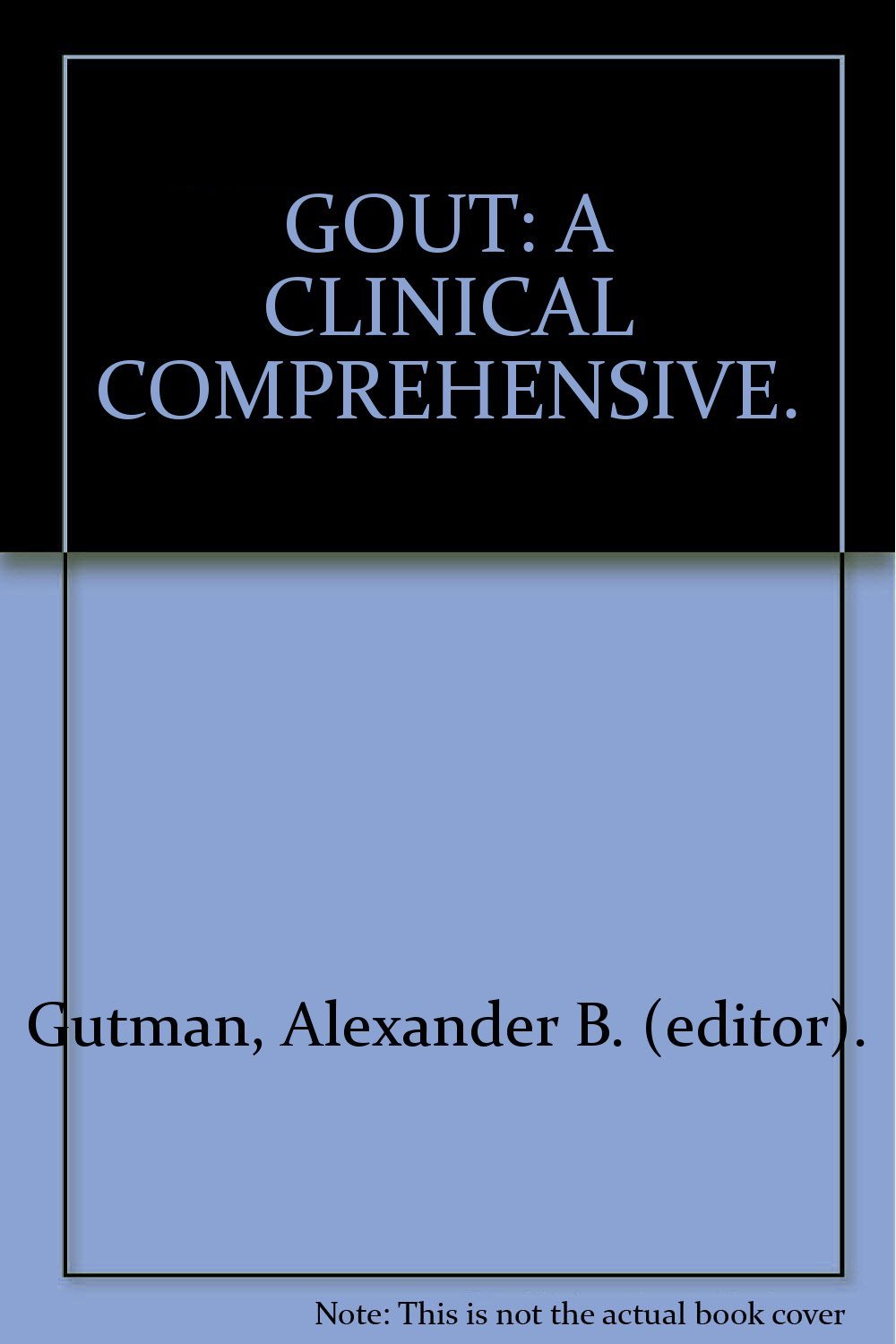Disclosure: As an Amazon Associate, I earn from qualifying purchases.
Have you ever wondered if there's a comprehensive resource that dives into the intricacies of gout? If you’re seeking an in-depth guide, “Gout: A Clinical Comprehensive. Paperback – January 1, 1971” might just be the treasure trove of information you need. With its rich historical perspective and clinically focused insights, this book promises to be your go-to source for understanding this complex condition.
What Makes This Book Stand Out?
A Historical Perspective
“Gout: A Clinical Comprehensive” isn’t just a modern clinical guide; it also offers a historical viewpoint on how gout has been perceived and treated over the years. Written in 1971, it combines time-tested knowledge with scientific principles. Whether you’re a healthcare professional or a curious reader, this book provides a window into the past treatments and attitudes towards gout.
Detailed Coverage of Gout Symptoms and Diagnosis
One of the strengths of “Gout: A Clinical Comprehensive” is its detailed exploration of the symptoms and diagnostic criteria of gout. It provides clearly articulated descriptions that help you distinguish gout from other similar conditions. The book elaborates on the typical presentations, such as intense joint pain and swelling, often beginning at the base of the big toe.
Comprehensive Treatment Options
The authors delve into various treatment methodologies, both pharmaceutical and lifestyle-based. Although some treatment options may have evolved since 1971, many underlying principles remain the same. The book emphasizes the importance of tailored patient care, highlighting the need for a balanced diet, proper hydration, and regular monitoring.
An Insightful Look at the Content
Table of Key Sections
Here’s a handy breakdown of the critical components of the book:
| Section | Description |
|---|---|
| Historical Context | Discusses ancient and medieval perspectives on gout. |
| Symptoms and Diagnosis | Outlines clinical presentations and diagnostic approaches. |
| Treatment Modalities | Covers both traditional and more contemporary treatments. |
| Case Studies | Provides real-world examples to illustrate key points. |
| Management Strategies | Outlines lifestyle and dietary recommendations for patients. |
Historical Context
Understanding gout requires acknowledging its rich history. The book delves into how gout was seen as a disease associated with indulgence and wealth. It explores past misconceptions and sets the stage for how perceptions have changed, helping you appreciate the condition's evolution.
Clear and Concise Symptom Explanation
When it comes to identifying gout, clarity is key. The authors have carefully detailed the symptoms, which is particularly useful if you're dealing with unexplained joint pain. Terms are clearly defined, making it accessible even to those with no medical background.
Traditional and Modern Treatments
Even though some treatment advice is over 50 years old, “Gout: A Clinical Comprehensive” discusses lifestyle changes that continue to be relevant. You'll find dietary recommendations, like avoiding purine-rich foods, alongside discussions of medications available at the time. This combination offers insight into the foundational principles of gout management.
Case Studies for Real-World Application
What makes this book even more valuable are the case studies spread throughout. These real-life examples can help translate clinical data into relatable scenarios, demystifying complex medical jargon and providing practical knowledge applicable to everyday situations.
Strategies for Managing Gout Long-Term
Incorporating advice on diet and lifestyle, the book doesn’t shy away from discussing the long-term management strategies necessary to prevent flare-ups. These insights into vitamin intake, hydration, and exercise regiments are just as useful today as they were when first written.
Final Thoughts
If your aim is to gain a robust understanding of gout with a nod to historical medical practice, “Gout: A Clinical Comprehensive. Paperback – January 1, 1971” makes a compelling choice. While some medical advancements have occurred since its publication, the core knowledge remains relevant, offering you a base from which to further explore modern treatment possibilities. It's a quaint yet thorough exploration of gout that balances past wisdom with enduring medical principles.



